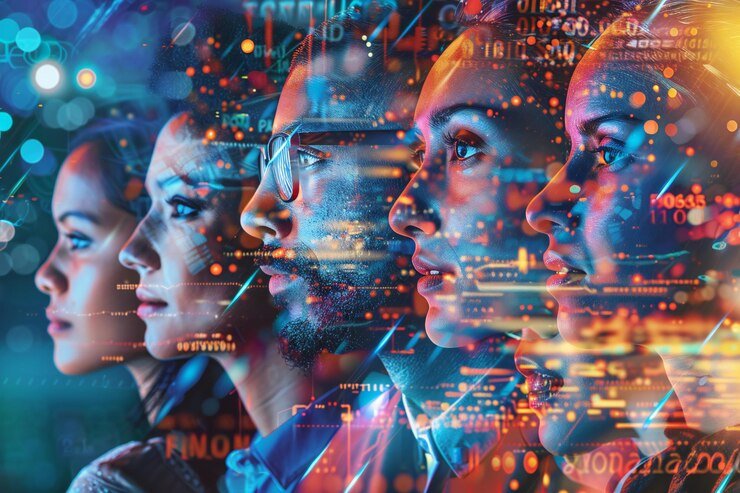
Generative AI, with its ability to create novel content, has ignited a wave of innovation across industries. From art and music to text and code generation, these models are reshaping the creative landscape. However, the rapid advancement of Gen AI has also raised significant ethical concerns.
As these models become increasingly sophisticated, it’s imperative to examine the ethical implications of their development and deployment. This series will delve into the complex issues surrounding Gen AI, exploring the potential harms and benefits, and discussing the role of developers, policymakers, and society in shaping its future.
Bias in Gen AI
One of the most pressing ethical concerns surrounding Gen AI is the issue of bias. These models are trained on vast datasets, which often reflect societal biases. As a result, Gen AI models can perpetuate and even amplify these biases in their outputs.
Types of Bias:
- Algorithmic Bias: This occurs when the model’s algorithm itself is biased, leading to discriminatory outcomes.
- Data Bias: Bias present in the training data is reflected in the model’s outputs.
- Societal Bias: Broader societal biases are inadvertently incorporated into the model.
Consequences of Bias:
- Discrimination: Biased models can lead to discriminatory outcomes in areas such as hiring, lending, and criminal justice.
- Misinformation: Biased information can be amplified and spread through AI-generated content.
- Trust Erosion: The public’s trust in AI can be eroded if models are perceived as biased.
Addressing bias in Gen AI is a complex challenge that requires a multifaceted approach, including careful data curation, algorithm design, and ongoing monitoring.
Copyright and Intellectual Property
The intersection of Gen AI and intellectual property (IP) law presents a complex and evolving landscape. As these models generate creative outputs, questions arise about ownership, copyright infringement, and the protection of original works.
Key Issues:
- Copyright Infringement: Gen AI models are trained on vast datasets that often include copyrighted material. This raises concerns about potential copyright infringement when the model generates outputs that resemble existing works.
- Ownership of AI-Generated Works: Who owns the copyright to content created by a Gen AI model? Is it the model’s creator, the model’s owner, or the user who prompted the generation?
- Deepfakes and Misinformation: The ability of Gen AI to create highly realistic synthetic content raises concerns about the potential for misuse, including the creation of deep fakes and the spread of misinformation.
The rapid development of Gen AI has outpaced the legal framework, leading to uncertainty and legal challenges. As the law evolves, it’s crucial for developers and users of Gen AI to be aware of the potential IP implications and take steps to mitigate risks.
Privacy Concerns in Gen AI
Privacy is a fundamental human right, and the rise of Gen AI has raised significant concerns about data collection, usage, and protection.
Key Privacy Issues:
- Data Collection: Gen AI models require vast amounts of data for training. This often includes personal information, raising questions about data collection practices and consent.
- Data Privacy: Ensuring the privacy of individuals whose data is used to train AI models is crucial. Data breaches or misuse can have severe consequences.
- Surveillance Capitalism: The potential for Gen AI to be used for mass surveillance and profiling poses a threat to individual privacy.
Addressing privacy concerns requires a comprehensive approach, including data minimization, anonymization, and robust data protection measures.
The Future of AI Ethics and the Role of Regulation
The rapid evolution of Gen AI necessitates a proactive approach to ethical considerations. As the technology matures, so too must our understanding of its implications and our ability to govern its development and deployment.
The Role of Regulation:
- Establishing Ethical Guidelines: Governments and regulatory bodies must develop clear ethical frameworks for AI development and use.
- Enforcing Accountability: Regulations should hold developers and deployers accountable for the actions of their AI systems.
- Protecting Consumer Rights: Laws should safeguard consumer privacy and prevent discriminatory practices enabled by AI.
The Importance of Collaboration:
- Public-Private Partnerships: Collaboration between government, industry, and academia is essential for developing effective AI governance.
- Global Cooperation: As AI is a global phenomenon, international cooperation is necessary to establish consistent ethical standards.
- Ethical AI Certifications: Developing certification programs can help build trust in AI systems and promote ethical practices.
Conclusion
The ethical implications of Gen AI are profound and far-reaching. By fostering a culture of responsible innovation, prioritizing transparency, and establishing robust regulatory frameworks, we can harness the potential of this technology while mitigating its risks. The future of AI ethics is a shared responsibility that requires ongoing dialogue and collaboration among all stakeholders.
Tired of limitations? Our lifetime membership offers unrestricted access to ChatGPT and Generative AI. Boost your productivity, creativity, and problem-solving abilities. Join now and experience the future of AI.